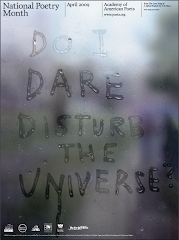Written by a pompous woman who is too attached to the past and resistant to change, The New Advocacy and the Old, details Gertrude Himmelfarb’s opinion that “the ideology of Moi” should be eliminated from all classrooms, especially English and history courses. Himmelfarb believes that subjectivity is overused, and that the use of the first pronoun, “I”, in academic writing is a form of narcissism that should not be present in academia. The absence of any idea of truth and objective knowledge does not allow for educators to judge “scholarly merit.” All personal experience should be eliminated from scholarly work.
The Rise of English, by Terry Eagleton, describes the nature of English as both a discipline for the masses (middle and lower classes) and the wealthy elite. He also makes an intriguing point that English, most specifically the study of literature, actually grew out of the failure of religion to serve as a solid ideology. Once people began to lose faith in God, they turned to literature as something to believe in. According to Eagleton, evaluating literary works is based on “deeper judgments about the nature of history and society.” Studying literature allows a reader to learn about the self.
Subscribe to:
Post Comments (Atom)













Megan,
ReplyDeleteI'm impressed that you did a summary for each essay.
I enjoyed the opening to your summary of Himmelfarb, and I liked that aside from that one comment you stuck to her points. I think you effectively show that you disagree without overpowering her points with your own.
I think you've done a great job of pulling out the most important points from Eagleton's essay and presenting them in a very readable but well-written summary.
Great work!
Abby